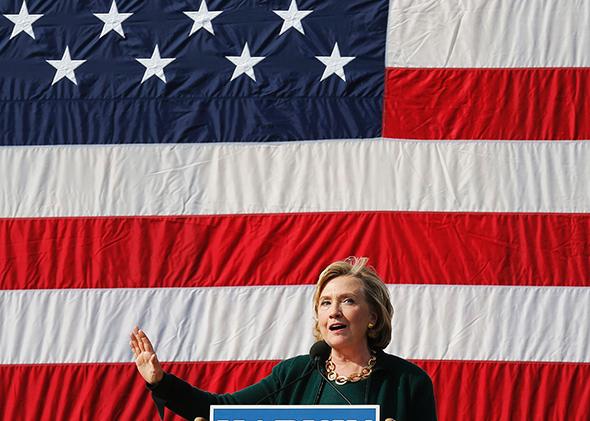Have pity on the Democratic poo-bahs of the early primary-season states of Iowa, New Hampshire, and South Carolina, who are suffering the greatest case of political denial this side of Chris Christie’s zombie presidential aspirations.
According to a remarkable, almost surreal front-page story in Wednesday’s Washington Post, the Democratic chieftains and activists in the early primary states are deeply aggrieved that Hillary Clinton has not yet graced them with her presence at coffee klatches and union halls, given that it is a mere 10 months until voting begins:
“They’re anxious because so many Republican candidates are coming here, they’re flowing in, and it’s like a parade on the other side,” said New Hampshire state Sen. Lou D’Allesandro, a top Clinton backer in 2008. “Obviously she’s going to run. They’re hoping she’s going to be here so they can actually see her and engage with her and reinvigorate the campaign.”
And:
“People want to see you, people want to touch you, people want you to pray with them,” [South Carolina state Rep. Bakari] Sellers said. “Those are things that have to be done. She doesn’t have to live in South Carolina, but we expect her to run hard in South Carolina and be in position so that little girls can actually run up and say, ‘Oh, my God, I met Hillary Clinton.’ That is how the excitement builds.”
And:
“What she would need to do is just come out, do her usual thing, get around to some homes, get around Iowa — and she’s good at that. She’s very, very good at that,” [former Iowa senator Tom] Harkin said. He added: “She can’t do it from a distance. She’ll have to get out here.”
And:
“We like to consider the New Hampshire primary the biggest job interview that takes place in America,” said James M. Demers, who co-chaired Obama’s 2008 campaign in the state. “It’s very personal, and there is an expectation that all of the candidates go into the living rooms of citizens here, go into coffee shops, have town hall meetings and hear what’s on the minds of voters and answer questions directly.”
Said D’Allesandro: “You know New Hampshire. We’re a bit pompous. . . . They expect her to come and sit on the couch in their living rooms. They know she can’t do it for everybody, but they do expect her to do that.”
Look, I understand what these folks are going through. It’s a heady experience to get to vet the future leaders of the free world, a quadrennial Cinderella moment that I myself got to enjoy back when I was a cub reporter at a New Hampshire newspaper in 2000. The states’ role was especially exhilarating in 2008, during the great Obama-Clinton battle of the titans. But there was no Democratic action in 2012, and it’s sure looking as if there will be no real action in 2016, with Clinton appearing to have as uncontested a path to the nomination as any nonincumbent in modern memory.* (See here why I’m not yet willing to anoint Martin O’Malley as Gene McCarthy or even Bill Bradley.) And if Clinton wins the presidency, it is quite likely that things would be quiet again in 2020. That means state Democrats would have gone 16 years without being courted in a contested primary.
That’s a bleak prospect. But instead of facing it directly, Democrats in the early states are, to a comic degree, trying to redefine their role. No longer is their job as activists and voters and endorsers to choose among their party’s potential candidates, and therefore serve as winnowers, like the early brackets in the NCAA hoops tournament. Instead, they are trying to turn themselves into something like the parents of a teenaged girl: the authorities whose approval must be sought (“to come and sit on the couch in their living rooms”) with much humility and flattery, before the suitor can proceed on his way—even if there is just one suitor. That is, a mere anachronistic cultural formality.
This is absurd. I’m still willing to defend the early states when it comes to their pride of place in primary voting—as unrepresentative a system as this is, there really is something to be said for the seriousness with which voters in the state take their responsibility. But to demand a candidate’s time and attention when she has no viable competition opposing her on the ballot in those states? That is like demanding that a team that reached the World Series before its opponent has been determined must play a bunch more games just to fill the time or entertain the fans and the sports reporters. And it risks seriously straining the sympathy of the states’ most ardent defenders. If Democrats in these states want Hillary Clinton to take them seriously, they should drum up a real challenger for her. They shouldn’t allow their hallowed tradition to become a disingenuous charade.
*Correction, March 19, 2015: This article originally misstated that Dwight Eisenhower’s 1952 presidential nomination was uncontested. Eisenhower faced a challenge from Robert Taft. (Return.)
